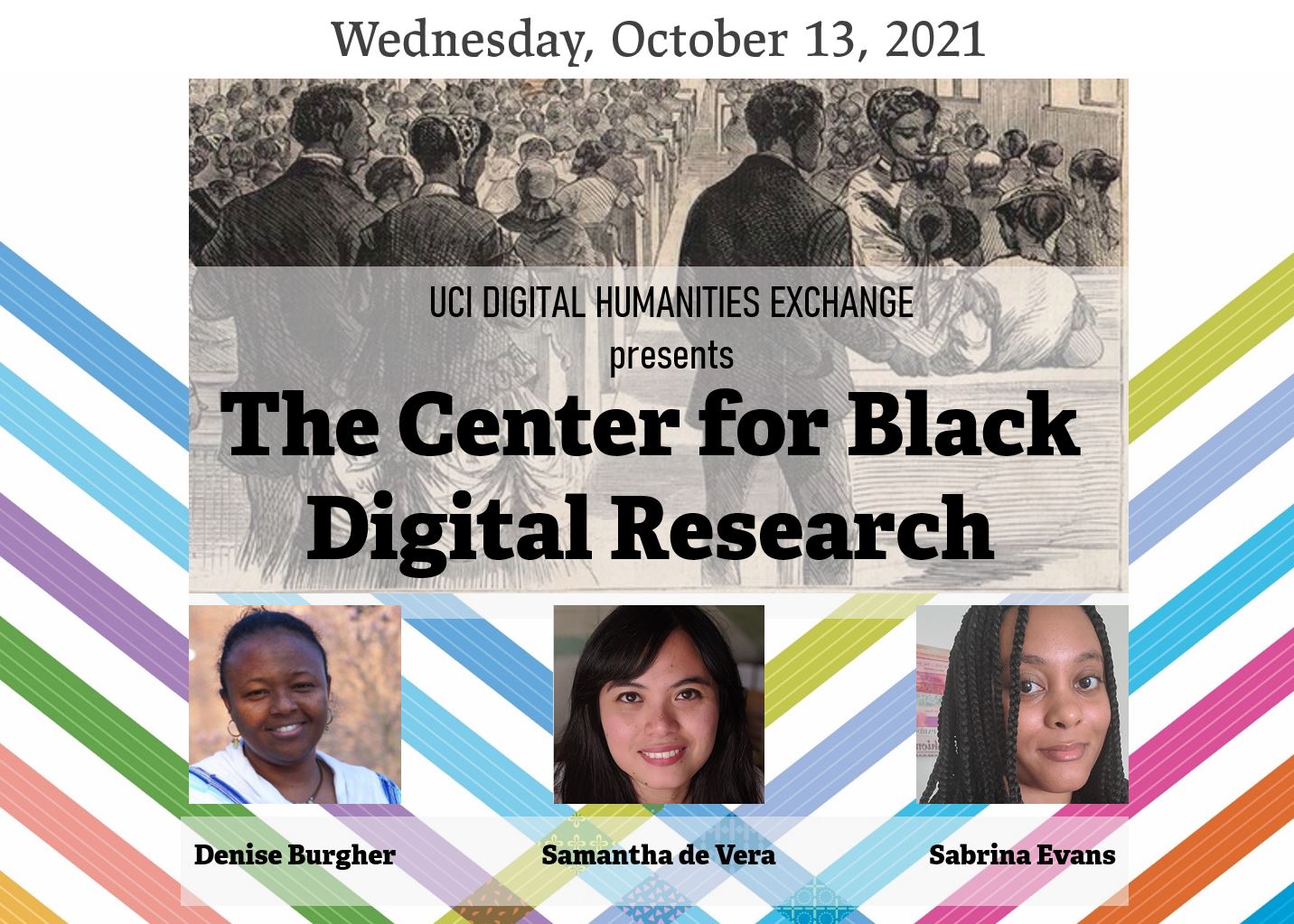The Digital Humanities Exchange hosted an event to speak on what their mission is and who they are on Wednesday, Oct. 13, from 1-2:30 p.m. Three members from the Center for Black Digital Research (CBDR) Samantha De Vera, Denise Burgher and Sabrina Evans spoke about their different roles, with Digital Humanities Exchange member Deanna Semark and UCI African American studies librarian Tatiana Bryant, mainly hosting the event.
Semark began the meeting by first honoring and recognizing the ancestral and unseated territories of the Tanga peoples.
De Vera focuses on Black refugees’ experiences during the Civil War. She began the conversation by talking about the first exhibits of the Colored Conventions Project, which documents a series of political gatherings that began in the 19th century, and discussed conventional developments throughout the years.
“They discuss racial uplift or education for Black men, as well as how to strategize toward political, civil and human rights,” De Vera explained.
Burgher is an English Ph.D. candidate at the University of Delaware who recently completed a year-long resident fellowship at the Library Company of Philadelphia. She focused and explained the values and ethics that the project has gained since its start.
Burgher explained how crucial it is to organize the Digital Humanities Exchange’s work around their principles and its importance on their success. She believes the project’s principles form the foundation of their relationships, their partnerships, the production of their work and their program as a collective. Her discussion also highlighted the importance of Frederick Douglass’ contribution to the Black movement.
“Why is it so critical, especially at this moment that [ Douglass] invited us to engage in a critique of the constitution,” Burgher said. “Not seeing it as a frozen or fixed document but instead is a living document that is meant to evolve and change over time.”
Evans is a Black Woman’s organizing archive project coordinator and an English and African American studies Ph.D. candidate. She introduced and discussed the center’s new projects using the archive she coordinated of 19th century Black women organizers.
“All deeply racialized and gender dismissals of the collective and collaborative work that these Black women intellectual activists pioneered through the Black women’s organizing archive,” Evans said. “We seek to draw together the scattered archives of Black women’s organizing works from the diverse histories of individual figures.”
Toward the end, there was a question portion where they dove into more details about the CBDR. The conversation ended with Ella Turenne, one of the hosts, thanking the three speakers for their labor and wisdom. Overall, the CBDR’s contributions to the community include raising awareness for historic leaders and for movements never given recognition.
Felwa Al-Rasheed is a Campus News intern for the fall 2021 quarter. She can be reached at fsalrash@uci.edu.


